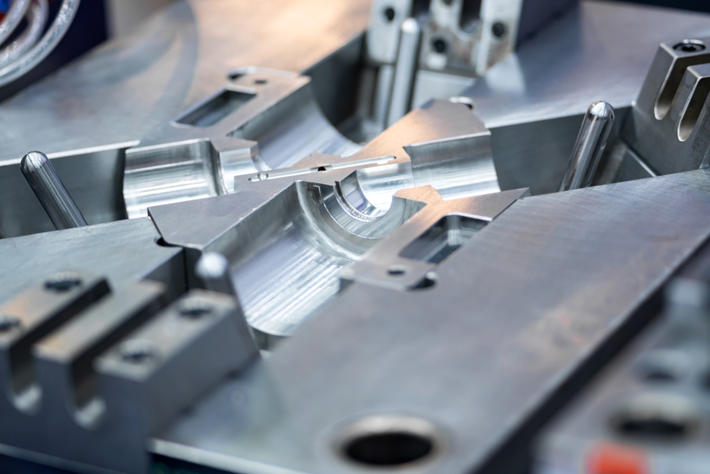In today’s fast-paced world, where technological advancements are at the forefront, precision is of utmost importance in the field of engineering. One such technique that has revolutionized the manufacturing industry is Precision Computer Numerical Control (CNC) Machining. It is an art that involves cutting-edge technology and a meticulous approach to achieve accurate and high-quality results. Let us delve deeper into the world of precision CNC machining and explore its significance in engineering.
Precision CNC machining is a process that utilizes computer-aided design (CAD) and computer-aided manufacturing (CAM) software to control and automate the movement of machine tools. The CNC machines operate with a level of precision that is unattainable by manual operators. These machines can produce complex and intricate parts with consistent accuracy and repeatability.
The heart of precision CNC machining lies in the computer program that controls the machine’s movements. Engineers and technicians input the design specifications into the software, which then generates the necessary tool paths and commands for the CNC machine. This digital approach eliminates human errors and ensures that every step of the machining process is executed flawlessly.
One of the primary advantages of precision CNC machining is its ability to produce components with tight tolerances. Tolerance refers to the allowable deviation from the desired dimensions. In industries such as aerospace and medical, where precision is critical, even a minute deviation can have severe consequences. Precision CNC machining can achieve tolerances as low as a few microns, ensuring that every component meets the required specifications.
The versatility of precision CNC machining is another reason for its wide adoption in the engineering field. It can work with a variety of materials, including metals, plastics, composites, and even exotic materials like titanium and Inconel. From simple parts to complex geometries, precision CNC machining can handle a wide range of designs with ease. This has opened up new possibilities in product development and innovation, allowing engineers to push the boundaries of what is possible.
Moreover, precision CNC machining offers excellent repeatability. Once a program is created, it can be used repeatedly to produce identical parts with consistent accuracy. This is particularly important in mass production, where maintaining consistent quality and dimensions is crucial. The automated nature of CNC machining ensures that each part is precisely replicated, reducing the chances of human errors and minimizing waste.
Another noteworthy advantage of precision CNC machining is its efficiency. Compared to traditional machining methods, CNC machining significantly reduces production time. The automated processes and high cutting speeds enable faster turnaround times, allowing engineers to meet tight deadlines and increase productivity. Additionally, CNC machines can run continuously, 24/7, with minimal supervision, maximizing efficiency and reducing labor costs.
In addition to the benefits mentioned above, precision CNC machining also contributes to sustainability. The high precision and minimal material wastage result in optimized resource utilization. CNC machines can also be programmed to minimize energy consumption, further reducing the environmental impact. As sustainability becomes an increasing concern in the engineering industry, precision CNC machining offers a greener approach to manufacturing.

However, precision CNC machining is not without its challenges. The initial investment cost of CNC machines and the associated software can be substantial. Additionally, the complexity of programming and operating CNC machines requires skilled technicians and engineers. Training and keeping up with the latest advancements in CNC technology is essential to maximize the potential of precision CNC machining.
In conclusion, precision CNC machining has revolutionized the field of engineering by providing unparalleled accuracy, efficiency, and versatility. Its ability to produce components with tight tolerances and excellent repeatability has made it indispensable in industries that demand precision. As technology continues to evolve, precision CNC machining will continue to play a vital role in perfecting engineering with unmatched accuracy.
-

- High precision magnesium alloy die casting parts for automotive ignition lock
-

- Magnesium alloy Thixomolding power batter housing
-

- Ανταλλακτικά UAV με χύτευση με χύτευση thixomoolding από κράμα μαγνησίου
-

- Εξατομικευμένα εξαρτήματα thixomoolding εξαρτήματα UAV με κατεργασία CNC και επεξεργασία επιφάνειας
-

- Εξατομικευμένη μεταλλική μεσαία πλακέτα macbook κατασκευασμένη
-

- Ανταλλακτικά UAV με χύτευση με χύτευση thixomoolding από κράμα μαγνησίου

 0086-750-5616188
0086-750-5616188 +86 13392089688
+86 13392089688 sales@zhongmei-tech.com
sales@zhongmei-tech.com







